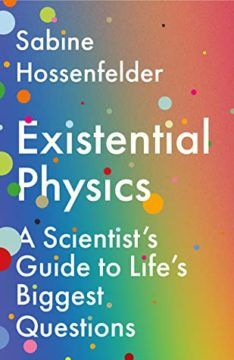Stephanie Bastek in The American Scholar:
 In pursuit of the natural laws of the universe, human beings have accomplished remarkable things. We’ve outlined the principles of gravity and thermodynamics. We’ve built enormous machines to dig into the deepest parts of the Earth, to understand what happens at the shortest quantum distances, and equally large machines to take pictures of the most distant parts of the cosmos. Still, there remain a number of foundational gaps in our knowledge—gaps that have allowed some wild ideas to take root. Some scientists hypothesize that, with every decision we make, our universe forks into multiverses, that consciousness arises from the quantum movements of microtubules, that the universe itself is conscious, or that there is this cat in a box and not in a box at the same time. These ideas, and related big questions about the nature of the universe, are the subject of particle physicist Sabine Hossenfelder’s new book, Existential Physics. In it, she argues that many of these far-out theories, put forward without evidence, are on par with religious belief. Physics, she contends, does not yet provide the answers to all of our questions—and it’s doubtful that it ever will.
In pursuit of the natural laws of the universe, human beings have accomplished remarkable things. We’ve outlined the principles of gravity and thermodynamics. We’ve built enormous machines to dig into the deepest parts of the Earth, to understand what happens at the shortest quantum distances, and equally large machines to take pictures of the most distant parts of the cosmos. Still, there remain a number of foundational gaps in our knowledge—gaps that have allowed some wild ideas to take root. Some scientists hypothesize that, with every decision we make, our universe forks into multiverses, that consciousness arises from the quantum movements of microtubules, that the universe itself is conscious, or that there is this cat in a box and not in a box at the same time. These ideas, and related big questions about the nature of the universe, are the subject of particle physicist Sabine Hossenfelder’s new book, Existential Physics. In it, she argues that many of these far-out theories, put forward without evidence, are on par with religious belief. Physics, she contends, does not yet provide the answers to all of our questions—and it’s doubtful that it ever will.
More here.
